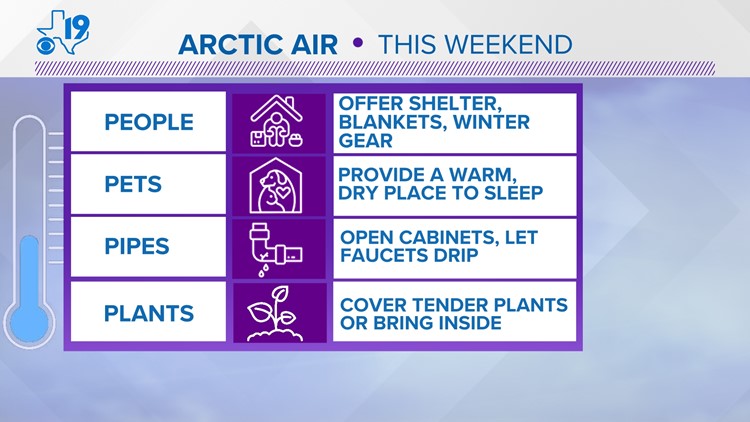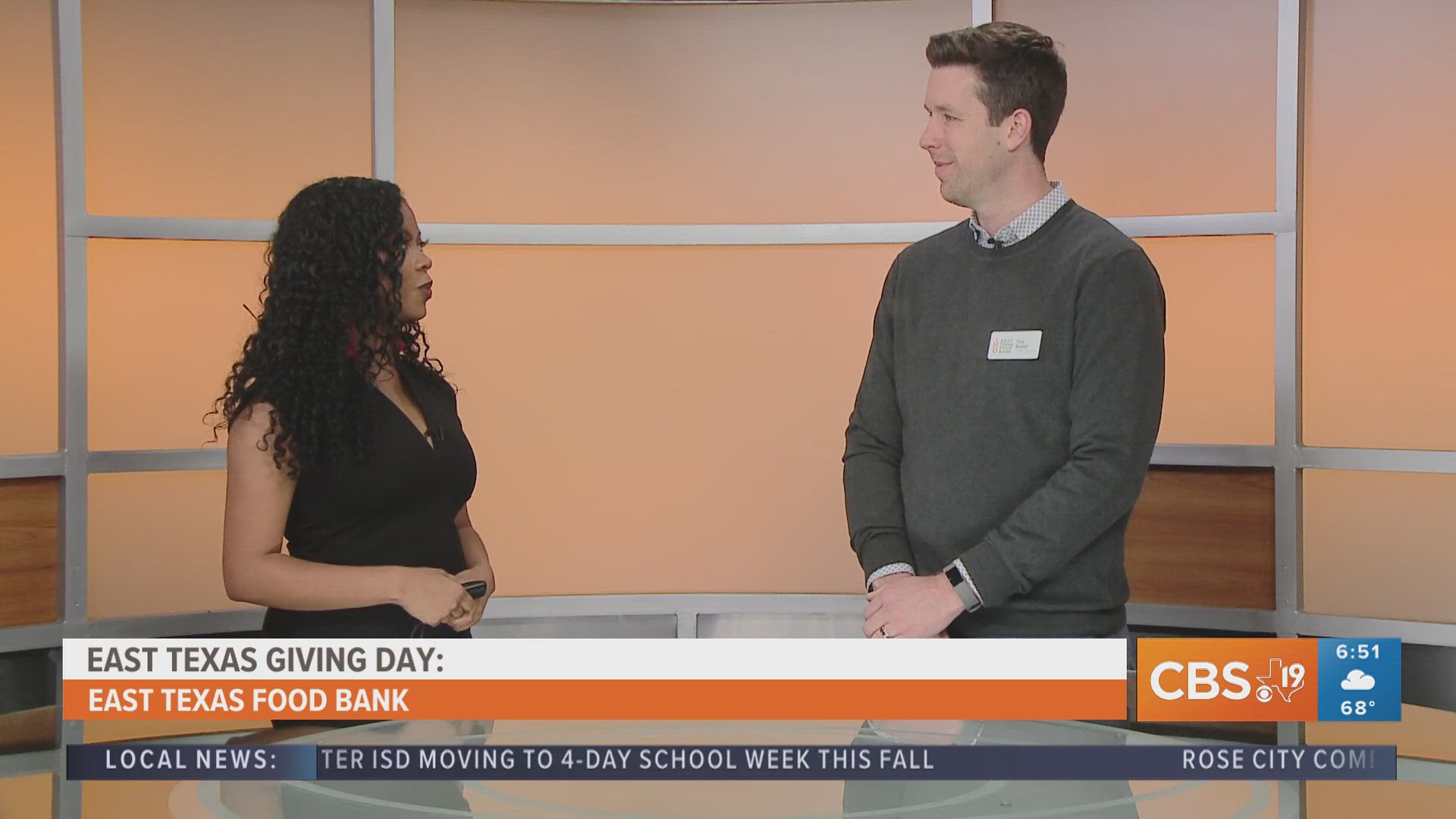TYLER, Texas — The City of Tyler has provided a list of tips to protect property, people and pets this Arctic blast.
Utilities/Water Pipes:
- All essential City Services, including water and wastewater services, will continue to operate at full capacity.
- Turn sprinkler systems off.
- Frigid temperatures can cause water lines to burst, leading to expensive plumbing repairs.
- Remove hoses from outside faucets. Insulate outdoor faucets with a commercial Styrofoam cover, towels, rags or paper.
- Know where the main water valve is located at your residence and how to turn it off.
- Cover or insulate exposed pipes outside or in unheated areas of your home.
- Let cold and hot water drip from faucets at a trickle.
- Open kitchen and bathroom sink cabinet doors to circulate warmer air around plumbing.
Space Heaters:
- Space heaters are a convenient way to supplement the heat in your home during cold weather. Unfortunately, they can cause significant fire and electric shock hazards if not used properly.
- Read the instructions and warning labels before using a space heater.
- Inspect heaters for cracked or broken plugs or loose connections before each use. If frayed, worn or damaged, do not use the heater.
- Never leave a space heater unattended. Turn it off when you're leaving a room or going to sleep, and don't let pets or children play too close to a space heater.
- Plug space heaters directly into a wall outlet. Do not use an extension cord or power strip, which could overheat and result in a fire. Do not plug other electrical devices into the same outlet as the heater.
- Never place heaters on cabinets, tables, furniture or carpet, which can overheat and start a fire.
- Never use a space heater to warm bedding, cook food, dry clothing or thaw pipes.
- Keep heaters at least three feet away from anything that can burn, including papers, clothing and rugs.
- Place space heaters out of doorways where they may pose a tripping hazard.
- Always unplug and safely store the heater when it is not in use.
Generators:
- Generators present safety and health concerns. Hazards of using a generator include carbon monoxide poisoning, fire and electrocution if not used properly.
- Carbon monoxide from generators is entirely colorless and odorless. It could kill your family and your pets.
- Never use a generator indoors or in partially enclosed spaces like homes, garages, and crawl spaces.
- Place the generator at least 20 feet from the house with the engine exhaust directed away from windows and doors.
- Plug appliances directly into the generator. Use an extension cord rated for outdoor use.
- Backfeeding is a dangerous practice and should not be done. Backfeeding means trying to power your home's wiring by plugging the generator into a wall outlet.
- Never overfill a generator with gas and never fill the generator while it's running.
- Clean any spilled gas and wait for it to dry up before powering your generator.
- Never store gas canisters next to a generator.
- Never smoke near a generator.
- Keep the area surrounding your generator clear (the safety radius can be found in your user manual).
- If you spot unusual amounts of smoke coming from your generator, call 9-1-1 immediately.
Dressing for cold weather:
- Wear appropriate outdoor clothing like a tightly woven, preferably wind-resistant coat or jacket; inner layers of light, warm clothing; mittens; hats; scarves; and waterproof boots.
- Dress warmly before going outside and limit your exposure to the cold to prevent frostbite. Stay dry to prevent hypothermia. Hypothermia and frostbite are dangerous conditions that can happen when people are exposed to freezing temperatures.
- Work slowly when doing outside chores.
- Stay hydrated.
- Early signs of hypothermia include cold feet and hands, puffy or swollen face, pale skin, shivering, slower than normal speech or slurring words, and acting sleepy, angry or confused.
- Later signs of hypothermia include moving slowly, trouble walking, being clumsy, stiff and jerky arm or leg movements, slow heartbeat, shallow breathing, and lacking or losing consciousness.
- Call 9-1-1 if you think someone has warning signs of hypothermia.
Pets
- Tyler Animal Control and Shelter reminds pet owners to bring their pets inside where it is warm or set up proper shelter for the animal.
Plants
- Cover vulnerable plants and flowers with blankets or sheets.
Roads
- Snow is not predicted during this arctic blast; the National Weather Service has not ruled it out. Even small accumulations of ice can be extremely dangerous to motorists and pedestrians.
- Black ice is a deadly driving hazard defined as patchy ice on roadways or other transportation surfaces that cannot easily be seen. It is often clear (not white), with the black road surface visible underneath. It is most prevalent during the early morning hours, especially after snow melt on the roadways has a chance to refreeze overnight when the temperature drops below freezing.
- Share your travel plans with friends or family and get the latest weather forecasts from the National Weather Service or a local radio or TV station.
- Check your vehicle's heater, defroster, brakes, brake fluid, ignition, emergency flashers, exhaust, oil, and battery before your departure.
- Pack an emergency supply kit with blankets, winter clothes, hats, coats, gloves, mittens, extra food and water, jumper cables, ice scraper, shovel, flashlight with extra batteries, first aid kit, medications, road map, cell phone charger



